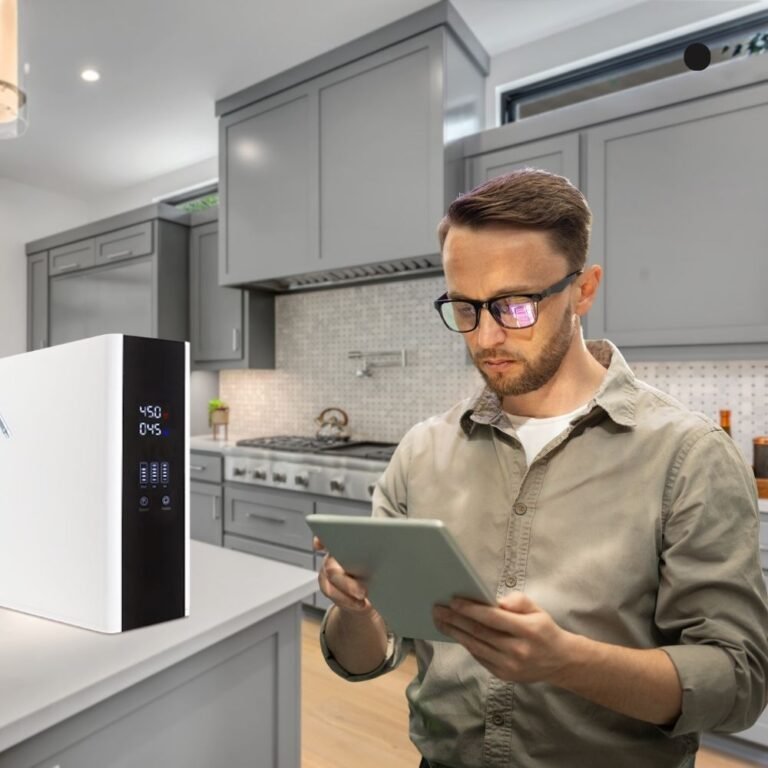Reverse Osmosis vs Water Filtration: Which is the Superior System?
When it comes to ensuring that the water we consume is safe and clean, there are many options available. Two popular methods of water purification are reverse osmosis and water filtration. While both systems have their benefits and drawbacks, it can be difficult to determine which is the superior system. In this article, we’ll take a closer look at reverse osmosis and water filtration, and compare the two systems to help you make an informed decision.
What is Reverse Osmosis?
Reverse osmosis is a water purification system that uses a semipermeable membrane to remove contaminants from water. Water is forced through the membrane, which allows only water molecules to pass through, while blocking larger molecules like minerals and other contaminants. Reverse osmosis systems typically require electricity to operate, and produce a small amount of wastewater as part of the purification process.
One company that provides reverse osmosis systems is eWater. They offer a range of systems that are designed to meet the needs of both residential and commercial customers. Their systems are designed to provide clean, safe, and great-tasting water, and are backed by a team of experts who can assist with installation, maintenance, and repairs.
What is Water Filtration?
Water filtration is a process that removes contaminants from water using a physical or chemical process. There are several types of water filtration systems available, including activated carbon filters, ceramic filters, and UV filters. Water filtration systems typically do not require electricity to operate, and do not produce wastewater as part of the purification process.
Comparing Reverse Osmosis and Water Filtration
When comparing reverse osmosis and water filtration, there are several factors to consider. These include:
- Purification effectiveness: Reverse osmosis is considered one of the most effective water purification systems available, as it is capable of removing up to 99% of contaminants. Water filtration systems are also effective, but may not remove all contaminants.
- Cost: Reverse osmosis systems can be more expensive than water filtration systems, both in terms of the initial cost and ongoing maintenance costs.
- Environmental impact: Reverse osmosis systems produce wastewater as part of the purification process, which can be a concern for those who are environmentally conscious. Water filtration systems do not produce wastewater.
- Convenience: Reverse osmosis systems require electricity to operate, and may require professional installation. Water filtration systems are generally easier to install and maintain.
- Taste: Many people prefer the taste of water that has been purified using reverse osmosis, as it removes impurities that can affect the taste of water. Water filtration systems may also improve the taste of water, but may not be as effective as reverse osmosis.
Which System is Right for You?
When deciding between reverse osmosis and water filtration, it’s important to consider your specific needs and preferences. If you are looking for a highly effective water purification system that produces clean, safe, and great-tasting water, reverse osmosis may be the best choice for you. However, if you are looking for a more affordable and environmentally friendly option, water filtration may be a better choice.
Ultimately, the decision comes down to your personal preferences and priorities. It’s important to research both options thoroughly, and consult with a water purification expert before making a decision.
Conclusion
Both reverse osmosis and water filtration are effective water purification systems that can provide clean, safe, and great-tasting water. While reverse osmosis may be more effective, it is also more expensive and can have a greater environmental impact. Water filtration is a more affordable and environmentally friendly option, but may not be as effective as reverse osmosis. Ultimately, the decision of which system to choose comes down to your specific needs and priorities.
If you are interested in learning more about reverse osmosis and water filtration systems, or are looking for a provider of reverse osmosis systems, eWater is a great resource. Their team of experts can assist you in selecting the right system for your needs, and provide installation, maintenance, and repair services as needed.


